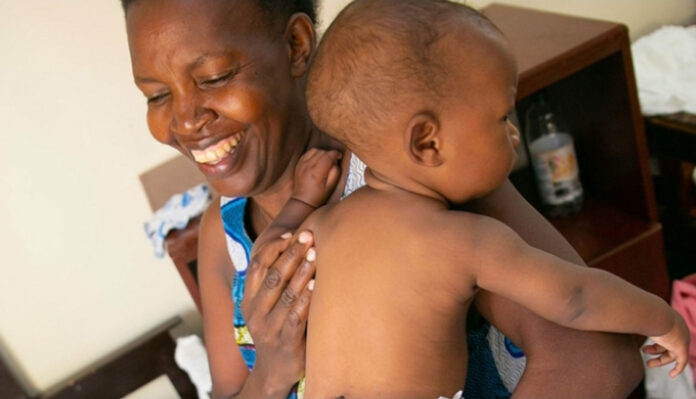Spina bifida is a type of health condition that affects the spine. This condition is one of the two most common forms of neural tube defects. The other condition is known as anencephaly.
According to the Centre for Disease Control (CDC), this condition can occur at any place along the spine if the neural tube fails to close all the way during the baby’s pre-birth development.
“If the neural tube fails to close all the way, the backbone that protects the spinal cord will not form and close as it should. This usually occurs a few weeks after conception, between 21 and 28 days, and results in damage to the spinal cord and nerves,” the CDC states.
The CDC explains that the severity of the spina bifida condition will largely depend on the size and location of the opening in the spine, and whether part of the spinal cord and nerves have been affected.
Signs and symptoms
The Nairobi Spine and Orthopedic Centre says that there are several that come with a patient who has spina bifida. These include:
- A weakness or paralysis in the legs
- The buildup of cerebrospinal fluid (CSF). This can cause hydrocephalus (commonly referred to as water on the brain) or brain damage.
- Spine, hip, foot, and leg deformities. These are often caused by imbalances in muscle strength and function due to residual paralysis.
- Obesity and urinary tract disorders. Obesity is often the result of inactivity while urinary tract problems are the result of a poor drainage.
- Lack of sensation in the skin
- Development of a tethered spinal cord.
- Growth hormone deficiency. This can result in short stature is common in people with spina bifida.
Causes
According to the CDC, the actual cause of spina bifida remains unknown. However, there are several risk factors that can set a pregnant mother on the path of spina bifida.
These risk factors include family history, where the risk increases if one sibling has been born with the condition. For example, if you have a child with spina bifida, chances of your child getting a sibling with the same condition are high if mitigating factors are not observed.
According to the Nairobi Spine and Orthopedic Centre, there are also medications such as valproate which are used to treat epilepsy or bipolar disorder raising the risk. Women who suffer from obesity and diabetes are also more likely to have a baby with spina bifida than those who don’t have these two health conditions.
“A low intake of plant proteins, iron, magnesium, and niacin before conception may be associated with an increased risk of neural tube defects by two to five times,” states the Nairobi Spine and Orthopedic Centre.
Diagnosis
According to the CDC, a spina bifida diagnosis can be made during pregnancy or after birth. During pregnancy, spina bifida can be tested through an ultra sound, alpha fetoprotein, or the amniocentesis test.
With an ultrasound test, the doctor will have the ultrasound picture of the fetus taken to see if the baby has this condition.
“Alpha fetoprotein will be a blood test that will measure how much of the this protein the baby has produced that has passed into the mother’s blood stream.A high level of alpha fetoprotein will mean that the baby might be having spina bifida,” states the CDC.
It further explains that with amniocentesis, a small sample of the amniotic fluid surrounding the baby in the womb will be taken to measure alpha fetoprotein. If there is high than average levels of alpha fetoprotein, the baby will most likely be having spina bifida.
The shame and pain of period poverty in Kenya
Prevention
You should take steps the moment you decide to start trying for a baby to minimize the likelihood of having a baby with spina bifida. According to the CDC, it is important to remember that this condition begins just a few days after conception. The CDC recommends that:
- You should take at least 400 micrograms (mcg) of folic acid every day. If your previous pregnancy was affected by spina bifida, ensure that you take a higher dose of folic acid before any future pregnancy and during early pregnancy.
- You should not take over the counter medicines, vitamins, dietary or herbal supplements without prescription from a qualified and licensed medical physician.
- You should avoid overheating your body. This might mean staying away from hot baths and sauna.
- You should get any fever you might have treated right away.
- You should keep your diabetic and obesity conditions under control before you get pregnant.
- You should increase your intake of plant proteins, iron, magnesium, and niacin.








